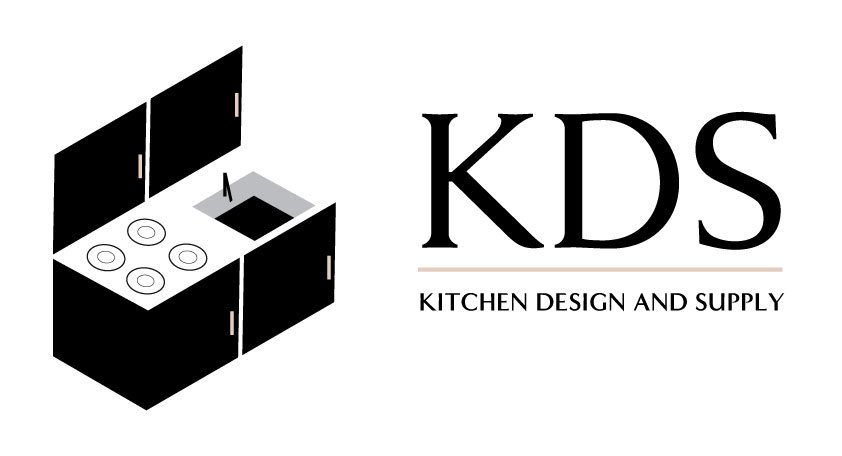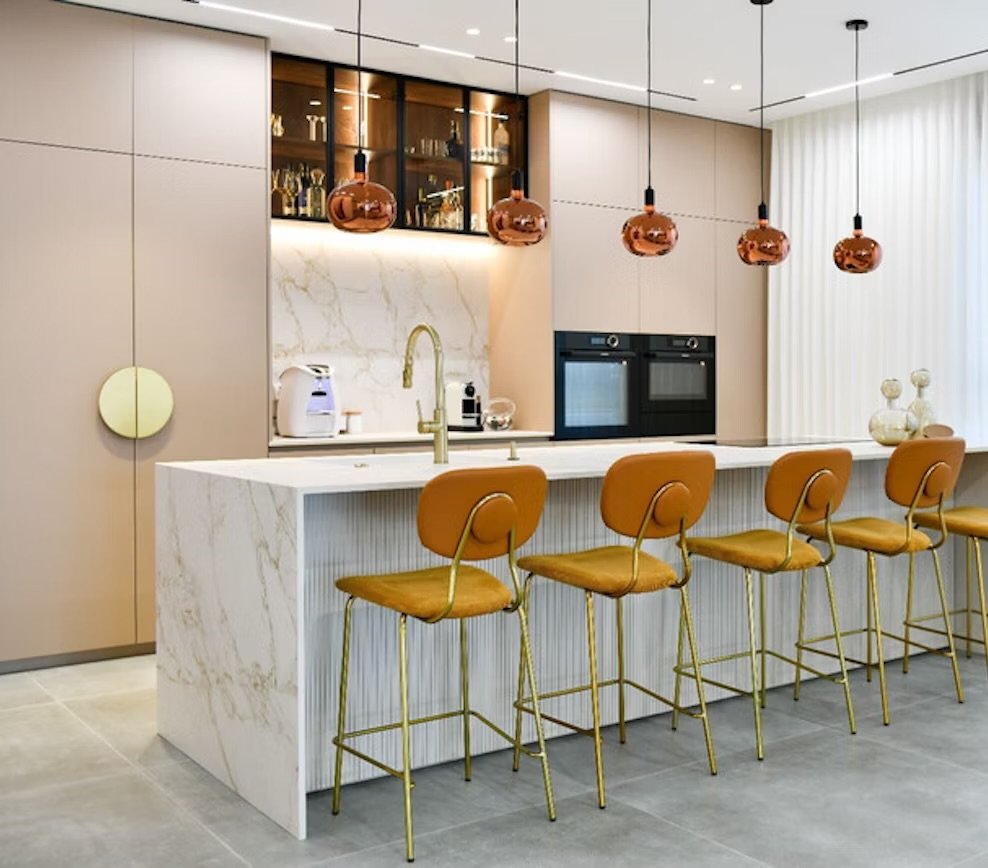Dekton Worktops Manchester
A Comprehensive Guide
When it comes to choosing the perfect kitchen worktop in Manchester, Dekton worktops have emerged as a premium option for homeowners seeking a blend of style, durability, and functionality. Manufactured by Cosentino, Dekton is an ultra-compact surface made from a sophisticated mix of natural quartz, porcelain, and glass, subjected to extreme heat and pressure through a process called Sinterised Particle Technology (TSP). This innovative material is gaining popularity in Manchester’s modern and contemporary homes due to its high performance and aesthetic versatility. In this detailed blog, we’ll explore the advantages and disadvantages of Dekton worktops and compare them to two other popular materials: quartz and granite. Whether you’re renovating your kitchen or building a new home in Manchester, this guide will help you make an informed decision.
What Are Dekton Worktops?
Dekton is a cutting-edge material designed to outperform traditional worktop surfaces. Its manufacturing process mimics the natural metamorphic changes that rocks undergo over thousands of years, but in a fraction of the time. The result is a non-porous, ultra-durable surface that’s resistant to scratches, stains, heat, and UV rays. Available in a wide range of colours, patterns, and textures, Dekton worktops can replicate the look of natural stone like marble or granite while offering superior technical properties. In Manchester, where modern kitchen designs and outdoor living spaces are on the rise, Dekton’s versatility makes it a top choice for both indoor and outdoor applications.
Advantages of Dekton Worktops
Dekton worktops offer a host of benefits that make them stand out in the competitive world of kitchen surfaces. Here are the key advantages:
Exceptional Durability: Dekton is one of the hardest worktop materials available, with a rating of 7 on the Mohs scale of mineral hardness, matching quartz and surpassing some granites. It’s highly resistant to scratches, abrasions, and impacts, making it ideal for busy Manchester kitchens.
Non-Porous Surface: Dekton’s zero porosity means it’s completely impervious to liquids, preventing stains from substances like red wine, coffee, or turmeric. This also makes it hygienic, as bacteria and mould cannot penetrate the surface.
High Heat Resistance: Dekton can withstand temperatures up to 400°C (752°F) without damage, allowing you to place hot pots and pans directly on the surface without needing a trivet. This is a significant advantage over other materials that may scorch or crack under heat.
UV Resistance: Unlike many worktop materials, Dekton is unaffected by ultraviolet rays, making it suitable for outdoor kitchens or sunlit Manchester homes. Its colours won’t fade over time, ensuring long-lasting vibrancy.
Versatile Design Options: Dekton comes in a wide array of colours, textures, and finishes, from matte to glossy, and can mimic natural stone, concrete, or wood. Its large slab sizes (up to 3.2m x 1.4m) allow for seamless designs, perfect for expansive kitchen islands.
Low Maintenance: Dekton requires minimal upkeep. A simple wipe with soapy water is enough to keep it clean, and it never needs sealing, unlike granite or marble.
Eco-Friendly: Many Dekton designs incorporate recycled materials, and its production process aims to minimise environmental impact, appealing to eco-conscious homeowners in Manchester.
25-Year Warranty: When professionally installed, Dekton comes with a 25-year warranty, providing peace of mind for long-term investment.
Disadvantages of Dekton Worktops
While Dekton is a high-performance material, it’s not without its drawbacks. Here are the main disadvantages to consider:
High Cost: Dekton worktops are typically more expensive than quartz or granite, with prices in the UK ranging from £250 to £1000 per square meter, depending on colour, thickness, and complexity of installation. This can be a significant investment for Manchester homeowners on a budget.
Brittleness: Despite its hardness, Dekton can be brittle and prone to chipping or cracking if subjected to heavy impacts, especially along edges or during installation. Professional handling is crucial to avoid damage.
Printed Patterns: Dekton’s patterns are printed on the surface rather than running through the entire slab. This means cut edges may reveal a plain base colour, which can be less aesthetically pleasing unless mitred edges are used, increasing costs.
Professional Installation Required: Dekton’s hardness and weight necessitate specialised tools and certified installers, ruling out DIY options and potentially increasing installation costs.
Limited Repair Options: While minor chips can be repaired by professionals, significant cracks or splits in Dekton are difficult to fix and may require slab replacement, unlike quartz or granite, which are more repairable.
Texture Concerns: Some Dekton finishes, like matte or textured surfaces, may feel less smooth than quartz, which could be a preference issue for some Manchester homeowners.
Comparison: Dekton vs. Quartz vs. Granite Worktops
To help you decide which worktop material is best for your Manchester kitchen, let’s compare Dekton to two popular alternatives: quartz and granite. Each material has unique properties, and the right choice depends on your budget, lifestyle, and aesthetic preferences.
Composition
Dekton: An ultra-compact surface made from sintered quartz, porcelain, and glass, with no resins. The TSP process creates a dense, non-porous material.
Quartz: An engineered stone composed of 90-94% ground natural quartz mixed with resins, adhesives, and pigments. It’s non-porous but contains synthetic binders.
Granite: A natural igneous rock quarried from the earth, containing at least 20% quartz along with feldspar and mica. It’s naturally porous unless sealed.
Durability
Dekton: Extremely durable, with superior scratch resistance (four times that of quartz) and a hardness rating of 7 on the Mohs scale. However, it’s brittle and can chip under heavy impact.
Quartz: Highly durable and resistant to scratches and chips due to its resin content, which adds flexibility. It’s less brittle than Dekton but not as hard.
Granite: Durable and hard (6-7 on the Mohs scale, depending on the slab), but more prone to chipping than quartz and less scratch-resistant than Dekton.
Winner: Dekton for scratch resistance, Quartz for chip resistance, Granite for balanced durability.
Stain Resistance
Dekton: Stain-proof due to its zero porosity, making it impervious to liquids and ideal for messy kitchens.
Quartz: Stain-resistant thanks to its non-porous surface, but acidic substances like lemon juice or vinegar can damage it if left uncleaned.
Granite: Porous (0.84% porosity at room temperature, up to 1.46% when heated), requiring regular sealing to prevent stains from spills like soy sauce or wine.
Winner: Dekton for stain-proof properties.
Heat Resistance
Dekton: Exceptional heat resistance, tolerating up to 400°C without damage, perfect for placing hot pans directly on the surface.
Quartz: Limited heat resistance (up to 148.9°C or 300°F). Hot pots can cause discolouration or cracking, so trivets are recommended.
Granite: Good heat resistance (up to 230-260°C), suitable for hot kitchenware, but prolonged exposure can increase porosity and risk staining.
Winner: Dekton for superior heat tolerance.
UV Resistance
Dekton: UV-proof, making it ideal for outdoor kitchens or sunlit Manchester homes without fading.
Quartz: Susceptible to UV damage, causing discolouration in direct sunlight, so it’s best for indoor use.
Granite: Generally UV-resistant, but some lighter granites may fade slightly over time in outdoor settings.
Winner: Dekton for outdoor and sunlit applications.
Aesthetics
Dekton: Offers a wide range of colours and patterns, including marble and concrete looks, but printed designs may not run through the slab. Available in matte, glossy, and textured finishes.
Quartz: Highly customisable with consistent patterns and vibrant colours, ideal for uniform looks. Its glossy finish is smoother than Dekton’s textured options.
Granite: Each slab is unique with natural veining and patterns, offering a luxurious, one-of-a-kind appearance, but colour options are limited by nature.
Winner: Quartz for customisation, Granite for natural beauty, Dekton for modern versatility.
Maintenance
Dekton: Virtually maintenance-free, requiring only soap and water for cleaning and no sealing.
Quartz: Low maintenance, non-porous, and easy to clean, but sensitive to acidic cleaners. No sealing required.
Granite: Requires periodic sealing (every 6 months to a few years) to maintain stain resistance and regular cleaning with mild soap to preserve its shine.
Winner: Dekton and Quartz for low maintenance.
Cost
Dekton: £250-£1000 per square meter, higher than quartz and granite due to its advanced manufacturing and installation requirements.
Quartz: £300-£500 per square meter, more affordable than Dekton but still a premium option.
Granite: £200-£600 per square meter, depending on the rarity of the stone, often less expensive than Dekton but comparable to quartz.
Winner: Granite for budget-conscious buyers, Quartz for mid-range, Dekton for premium investment.
Installation
Dekton: Requires certified professional installation due to its hardness and brittleness, increasing costs and complexity.
Quartz: Easier to fabricate and install than Dekton, with fewer restrictions, but still requires professionals.
Granite: Professional installation needed, but it’s less brittle than Dekton, making it easier to handle than Dekton but harder than quartz.
Winner: Quartz for ease of installation.
Why Choose Dekton Worktops in Manchester?
Manchester’s vibrant design scene, with its mix of industrial, modern, and traditional aesthetics, makes Dekton an excellent fit for local homeowners. Its ability to withstand the demands of busy urban kitchens, coupled with its suitability for outdoor spaces, aligns with the city’s growing trend of open-plan living and alfresco dining. Additionally, Manchester’s proximity to leading UK suppliers, such as Paramount Stone Specialists, ensures access to high-quality Dekton installations with competitive pricing.
If you prioritise durability, low maintenance, and a modern look, Dekton is a top contender. However, if budget is a concern or you prefer the natural charm of granite or the affordability of quartz, those may be better options. Consider your kitchen’s sunlight exposure, usage patterns, and design goals when deciding.
Conclusion
Dekton worktops are a premium choice for Manchester homeowners seeking a durable, stylish, and low-maintenance kitchen surface. Their exceptional resistance to stains, heat, and UV rays, combined with a versatile design range, makes them ideal for both indoor and outdoor applications. However, their higher cost and brittleness require careful consideration. Compared to quartz, Dekton offers superior heat and UV resistance but is less forgiving in terms of chipping. Against granite, Dekton eliminates the need for sealing and provides better stain resistance, but granite’s natural beauty and lower cost remain appealing.
Ultimately, the best worktop depends on your lifestyle, budget, and aesthetic preferences. For Manchester residents looking to invest in a high-performance surface that complements the city’s modern design trends, Dekton is a compelling option.


